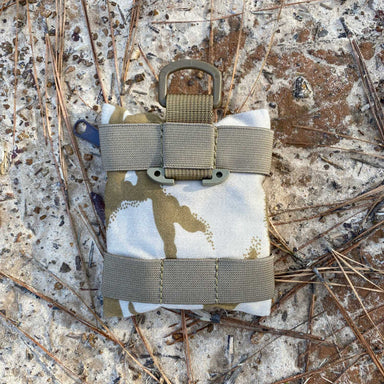
British Military | Field Shirt | Desert DPM Camouflage | Medium
Looking for a high quality field jacket for a desert climate? Well you're in luck! These British Desert DPM field jackets are in great shape! A hi...
View full details
British military history spans centuries and is marked by significant events, campaigns, and developments that shaped global history. Here's an overview highlighting key aspects of British military history:
Anglo-Saxon Period: Early medieval England saw the development of local militias and the use of fyrd (levied forces) for defense against Viking invasions.
Norman Conquest: The Battle of Hastings in 1066 led to the establishment of Norman rule in England and the introduction of feudal military obligations.
Conflict with France (1337-1453): The Hundred Years' War saw England and France vying for control over territories in France. Key battles included Agincourt (1415) and Joan of Arc's campaigns.
Elizabethan Age: The Elizabethan era saw England's navy, under figures like Sir Francis Drake, defeat the Spanish Armada (1588) and establish maritime supremacy.
English Civil War: (1642-1651): Royalist and Parliamentarian forces fought for control of England, leading to the execution of King Charles I and the establishment of the Commonwealth under Oliver Cromwell.
Age of Exploration: Britain established colonies in North America, the Caribbean, Africa, and Asia, using military force to secure territories and trade routes.
Seven Years' War: (1756-1763): Britain, allied with Prussia, fought against France and its allies, expanding its colonial holdings and influence.
Conflict with France (1803-1815): Britain, led by figures like Admiral Horatio Nelson and the Duke of Wellington, played a crucial role in defeating Napoleon Bonaparte's forces in Europe and at sea.
British Empire: The 19th century saw Britain's empire reach its peak, with military campaigns in India, Africa, and Asia to expand and maintain control over colonies.
Crimean War: (1853-1856): Britain, along with France and the Ottoman Empire, fought against Russia to protect Ottoman territories, with significant battles like the Siege of Sevastopol.
World War I: (1914-1918): Britain, as part of the Allies, fought against the Central Powers, with notable battles including the Somme and Ypres. The war led to significant social and political changes.
World War II: (1939-1945): Britain, under Winston Churchill's leadership, stood against Nazi Germany during the Battle of Britain and contributed to the Allied victory in Europe and the Pacific.
Decolonization: Britain decolonized many of its territories after World War II, transitioning from an imperial power to a member of the Commonwealth.
Cold War: Britain played a role in NATO and maintained a nuclear deterrent, participating in conflicts such as the Korean War and the Falklands War (1982).
Structure and Operations: The British Armed Forces consist of the Army, Navy, Royal Air Force, and Royal Marines, with commitments to defense, international peacekeeping, and humanitarian missions.
Global Engagement: Britain continues to play a role in global security through alliances like NATO, military interventions, and defense cooperation with allies.
British military history reflects a legacy of innovation, maritime power, and global influence, shaping international relations and military strategies over centuries. The British Armed Forces continue to adapt to modern challenges while upholding traditions of service and professionalism.
 Save Liquid error (snippets/product-badge line 32): Computation results in '-Infinity'%
Save Liquid error (snippets/product-badge line 32): Computation results in '-Infinity'%
Looking for a high quality field jacket for a desert climate? Well you're in luck! These British Desert DPM field jackets are in great shape! A hi...
View full details
 Save Liquid error (snippets/product-badge line 32): Computation results in '-Infinity'%
Save Liquid error (snippets/product-badge line 32): Computation results in '-Infinity'%
Hand crafted EDC pouchThese EDC pouches are upcycled from 100% authentic British DPM Desert UniformsInterior is lined with Ottertex Pu backed water...
View full details
